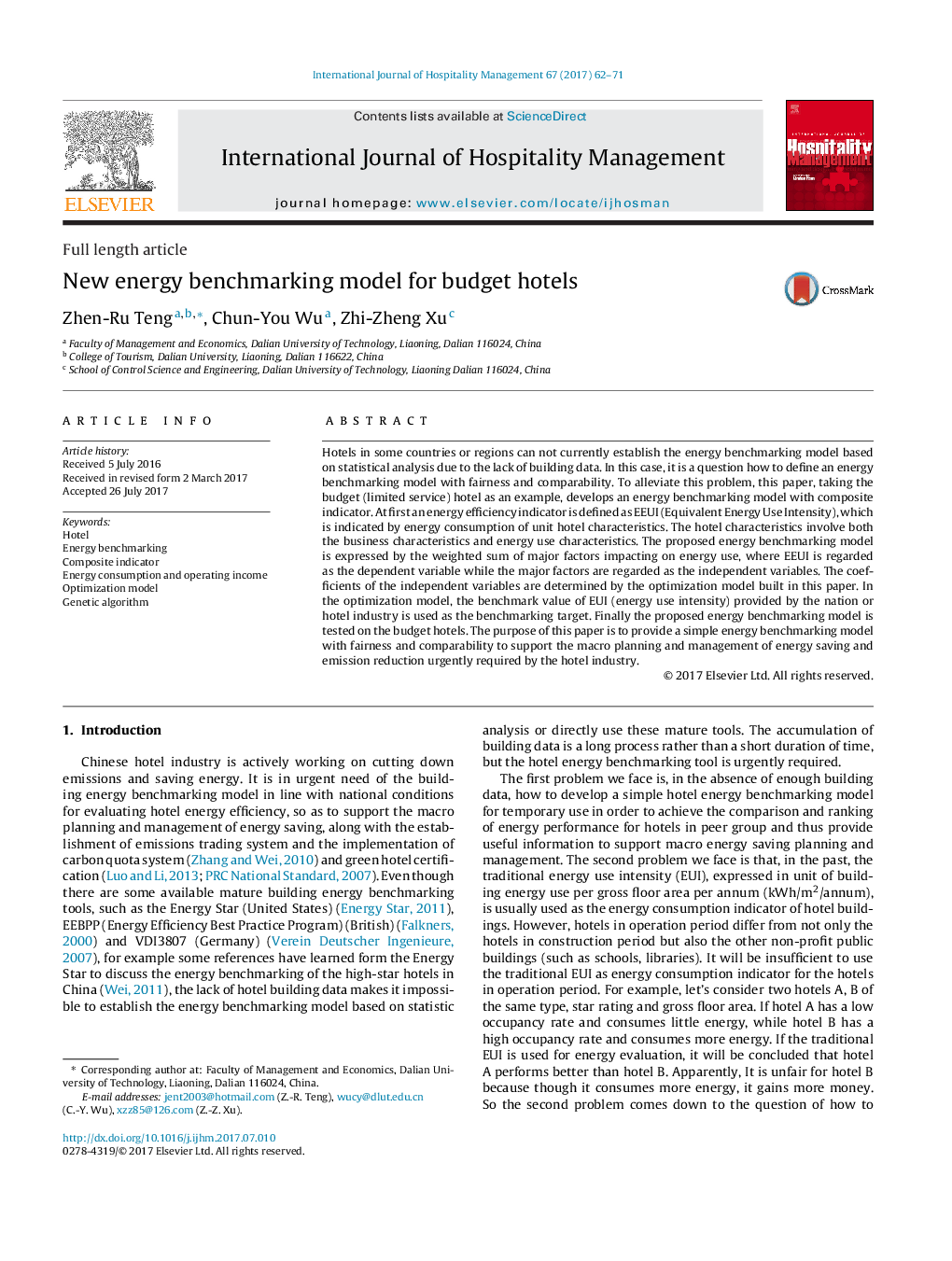| Article ID | Journal | Published Year | Pages | File Type |
|---|---|---|---|---|
| 5108202 | International Journal of Hospitality Management | 2017 | 10 Pages |
Abstract
Hotels in some countries or regions can not currently establish the energy benchmarking model based on statistical analysis due to the lack of building data. In this case, it is a question how to define an energy benchmarking model with fairness and comparability. To alleviate this problem, this paper, taking the budget (limited service) hotel as an example, develops an energy benchmarking model with composite indicator. At first an energy efficiency indicator is defined as EEUI (Equivalent Energy Use Intensity), which is indicated by energy consumption of unit hotel characteristics. The hotel characteristics involve both the business characteristics and energy use characteristics. The proposed energy benchmarking model is expressed by the weighted sum of major factors impacting on energy use, where EEUI is regarded as the dependent variable while the major factors are regarded as the independent variables. The coefficients of the independent variables are determined by the optimization model built in this paper. In the optimization model, the benchmark value of EUI (energy use intensity) provided by the nation or hotel industry is used as the benchmarking target. Finally the proposed energy benchmarking model is tested on the budget hotels. The purpose of this paper is to provide a simple energy benchmarking model with fairness and comparability to support the macro planning and management of energy saving and emission reduction urgently required by the hotel industry.
Related Topics
Social Sciences and Humanities
Business, Management and Accounting
Strategy and Management
Authors
Zhen-Ru Teng, Chun-You Wu, Zhi-Zheng Xu,
